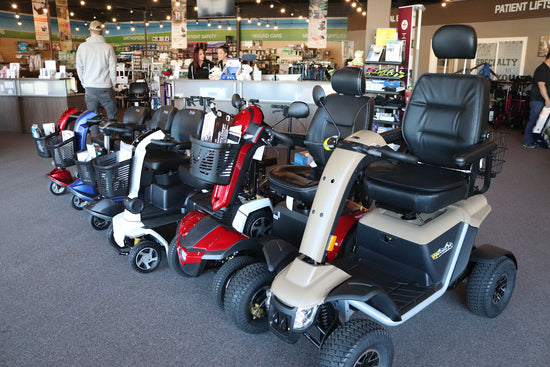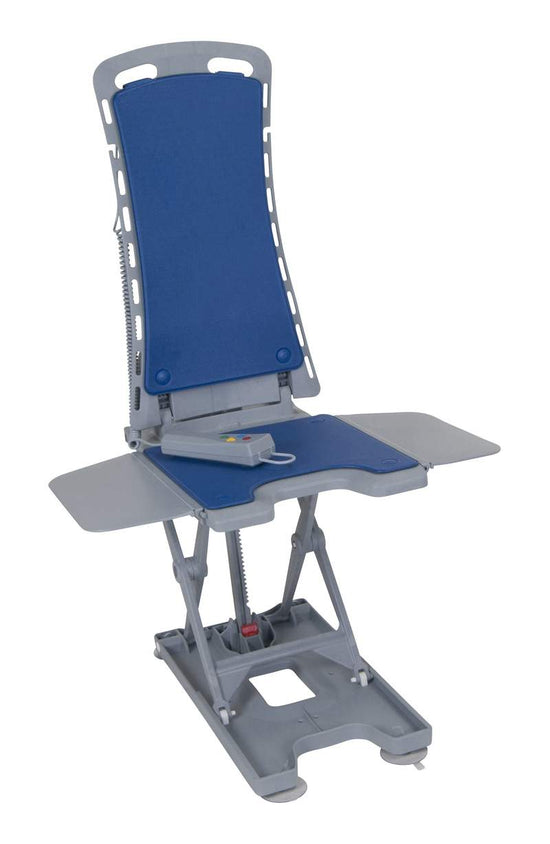In the ever-evolving world of healthcare, one aspect remains consistently crucial – medical equipment. The significance of these tools in ensuring optimal patient care cannot be overstated. From diagnosis to treatment and monitoring, they play an integral part in every step of a patient's journey. This is particularly true in the context of home medical care, where quality equipment can make a world of difference in a patient's comfort and recovery.
At Everything Medical Home Medical Equipment and Supplies, we understand this profound impact and are committed to providing top-notch, reliable equipment that enhances patient care. This article aims to delve deeper into how medical equipment plays a pivotal role in patient care. By understanding this, we can appreciate the importance of investing in high-quality, durable medical supplies and equipment for the best possible patient outcomes.
Role of Medical Equipment in Diagnosis
Medical equipment plays a pivotal role in the diagnosis of diseases and health conditions. It is the cornerstone of modern medical care, providing healthcare professionals with the tools they need to accurately identify and assess patient health.
- Detection of Diseases: Medical equipment like X-ray machines, MRI scanners, and ultrasound machines help in detecting abnormalities within the body. They provide images of internal structures, enabling physicians to pinpoint the location and extent of disease without invasive procedures.
- Confirmation of Diagnosis: Lab equipment such as microscopes and centrifuges facilitate the examination of blood, tissue, and other samples. This helps in confirming diagnoses, identifying pathogens, or monitoring disease progression.
- Health Assessment: Diagnostic tools like stethoscopes, thermometers, and blood pressure monitors allow healthcare professionals to assess a patient's vital signs and general health status. These measurements can be critical in diagnosing conditions like hypertension, heart disease, or infections.
- Screening and Prevention: Some equipment is used for regular screenings, such as mammograms for breast cancer or colonoscopies for colorectal cancer. Early detection through these screenings can lead to more effective treatment and better patient outcomes.
In conclusion, medical equipment's role in diagnosis is not just about identifying diseases but also about assessing overall health, monitoring disease progression, and even preventing disease through early detection. The advancements in medical technology continue to enhance diagnostic accuracy, leading to improved patient care.
The Importance of Medical Equipment in Treatment
Medical equipment plays a crucial role not just in diagnosing diseases, but also in treating them. The availability and use of appropriate medical equipment can significantly impact the effectiveness of treatment strategies and the overall patient recovery process.
- Administering Medications: Equipment like IV drips, syringes, and inhalers are essential for administering various medications. These devices ensure that drugs are delivered in the correct dosage and manner, enhancing their effectiveness and reducing potential side effects.
- Performing Surgeries: Surgical equipment, from scalpels to advanced robotic systems, is indispensable in performing surgeries. They allow surgeons to carry out complex procedures with precision, reducing risks and improving patient outcomes.
- Providing Support: Certain health conditions may require the use of supportive devices, such as wheelchairs, crutches, or ventilators. These pieces of equipment can significantly improve a patient's quality of life during recovery.
- Treatments at Home: Home medical equipment like oxygen concentrators, nebulizers, and dialysis machines enable patients to receive necessary treatments comfortably at home, reducing hospital stays and associated costs.
In conclusion, medical equipment's role in treatment is pivotal. It enables healthcare professionals to administer effective treatments and supports patients throughout their recovery journey. It's crucial to ensure the availability of high-quality medical equipment to facilitate optimal patient care.
Home Medical Equipment in Patient Monitoring and Care
Home medical equipment has become increasingly important in patient monitoring and care, particularly with the rise of telemedicine and home healthcare services. These devices enable patients to manage their health conditions at home, reducing hospital visits and improving their quality of life.
- Monitoring Vital Signs: Devices such as blood pressure monitors, glucose meters, and pulse oximeters allow patients to regularly monitor their vital signs at home. This continuous monitoring aids in managing chronic conditions like diabetes, hypertension, and COPD.
- Managing Chronic Conditions: Patients with chronic conditions such as sleep apnea or asthma can benefit from home medical equipment like CPAP machines and nebulizers. These devices provide necessary treatment and alleviate symptoms, enhancing comfort and health.
- Rehabilitation and Therapy: Home medical equipment like physiotherapy kits, resistance bands, and TENS units can assist patients undergoing rehabilitation or physical therapy. They help improve mobility, strength, and overall well-being.
- Emergency Care: Emergency medical equipment like defibrillators and first aid kits can be life-saving in critical situations. They provide immediate care before professional medical help arrives.
In conclusion, home medical equipment plays a significant role in patient monitoring and care, enabling better management of health conditions and facilitating recovery. As advancements continue, the importance and functionality of home medical equipment are expected to grow even further.
How Home Medical Equipment Enhances Patient Comfort
Home medical equipment plays a crucial role in enhancing patient comfort, particularly for those managing chronic conditions or recovering from surgeries or illnesses. These devices can significantly improve the quality of life by providing necessary care in the comfort of the patient's own home.
- Reduced Hospital Visits: Home medical equipment like nebulizers, insulin pumps, and dialysis machines allow patients to manage their conditions at home, reducing the need for frequent hospital visits. This not only saves time and resources but also alleviates the stress associated with hospital stays.
- Improved Mobility: Devices such as wheelchairs, walkers, and crutches enhance mobility for patients with physical impairments or those recovering from surgeries. These devices offer independence, allowing patients to carry out daily activities more comfortably.
- Pain Management: Equipment like TENS units, heating pads, and physiotherapy kits can help manage pain and discomfort associated with various conditions. They provide non-pharmacological options for pain relief, preventing potential side effects of medications.
- Better Sleep: Devices like CPAP machines for sleep apnea not only treat the condition but also improve sleep quality, leading to better overall health and well-being.
In conclusion, home medical equipment is critical in enhancing patient comfort. By facilitating at-home care and improving daily living, these devices contribute significantly to a patient's quality of life.
The Impact of High-Quality Medical Equipment on Patient Outcomes
High-quality medical equipment, like those provided by Everything Medical in Redding, California, can have a profound impact on patient outcomes.
- Accurate Diagnoses: High-quality diagnostic equipment ensures accurate identification of health conditions, enabling effective treatment plans. Misdiagnoses can lead to unnecessary or harmful treatments, highlighting the importance of quality equipment.
- Effective Treatments: Top-tier therapeutic equipment, such as IV pumps or dialysis machines, delivers precise treatments and medication doses. This accuracy improves treatment effectiveness and reduces potential side effects.
- Improved Safety: High-quality medical equipment undergoes rigorous testing and meets stringent safety standards, reducing risks associated with their use.
- Long-Term Cost Savings: Although quality equipment might require higher initial investment, it often proves more cost-effective over time due to its durability and reliability, leading to fewer replacements and repairs.
In conclusion, the role of high-quality medical equipment from providers like Everything Medical in patient care cannot be overstated. It contributes significantly to accurate diagnoses, effective treatments, patient safety, and cost savings - all leading to improved patient outcomes.




